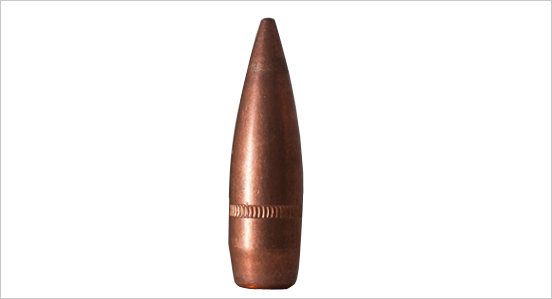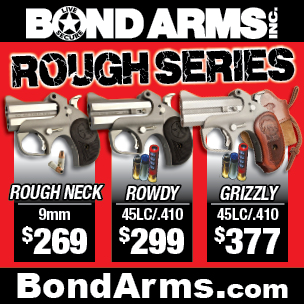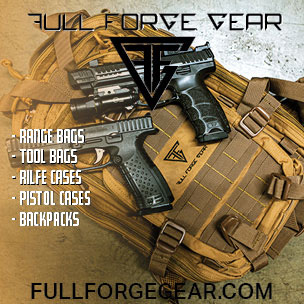Many first time gun owners feel overwhelmed by the sheer number of ammunition types and all of the ammunition-related terms that are used.
To help you get more comfortable as you discuss, select, or purchase ammunition, this section introduces some common types of ammunition, as well as, ammunition-related terms.
Basic Ammunition Types
While there are hundreds of kinds of ammunition, they can be divided down into three main groups.
- Shotgun Ammo
- Rifle Ammo
- Handgun Ammo
When shooting a shotgun, shotshells are used.
When shooting a rifle or handgun, cartridges (or rounds) are used.
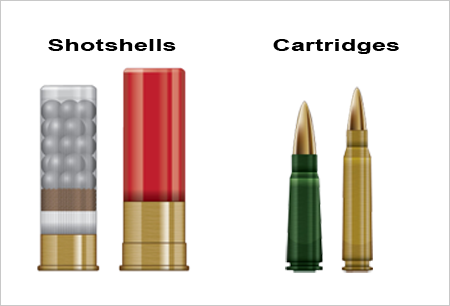
Shotshells
Shotshells can be broken down into three main types: bird shot, buck shot, and slugs.
Bird shot and buck shot are made up of metallic pellets (bird shot is smaller in diameter than buck shot).
A slug is a single, solid metal projectile (usually solid lead or copper).
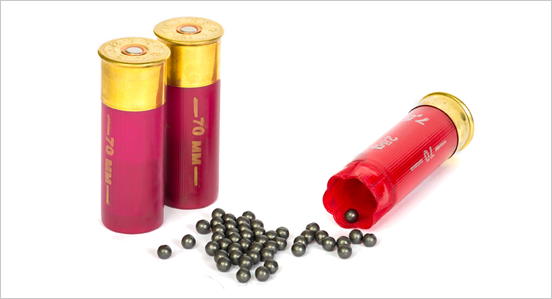
Rifle or Handgun Cartridges
Rifle and handgun ammunition can then be broken down into two main groups:
- Rimfire
- Centerfire
The difference between these two types of ammunition is where the primer strike occurs on the case.
With rimfire ammo, the primer is around the "rim" or base of the cartridge. In guns that use rimfire ammo, the firing pin is designed to strike the outside edge of the cartridge.
With centerfire ammo, the primer is in the center of the cartridge. Therefore, the firing pin in a centerfire gun is designed to strike the cartridge in the center, where the primer is.
Read more: Rimfire Read more: Centerfire
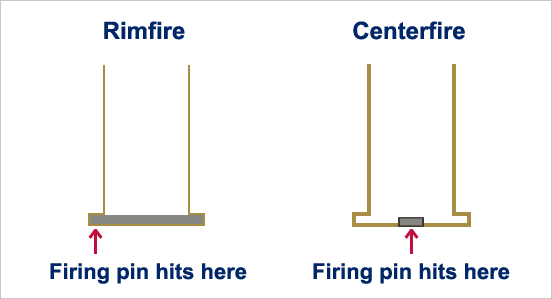
Caliber
Caliber refers to the diameter of the barrel of a firearm and consequently the diameter of the ammunition that can travel through it.
Calibers are typically measured in millimeters, hundredths of an inch or thousandths of an inch but may not be exact measurements.
Most firearms have the caliber for rifles and handguns or gauge for shotguns clearly marked on the barrel or side of the receiver.
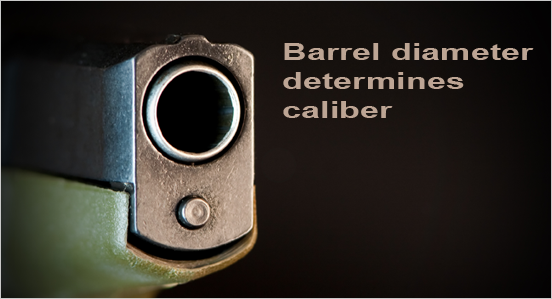
Types of Bullets
A bullet is the projectile that shoots out of a gun. It is not the entire piece of ammunition that you place into your gun (the entire piece is called a round or cartridge).
The type of gun you shoot(for example, 45ACP, 40SW, 38 Special) determines caliber of ammunition. Once you know the caliber, you need to choose the type of bullet you want to shoot. Knowing what you will use your gun for should help you determine bullet type.
Three common bullet types are:
- Full metal jacket (FMJ) commonly used for target shooting and competition
- Hollow point (HP) commonly used for self defense
- Soft point (SP) commonly used for self defense
Read more: FMJ Read more: HP Read more: SP
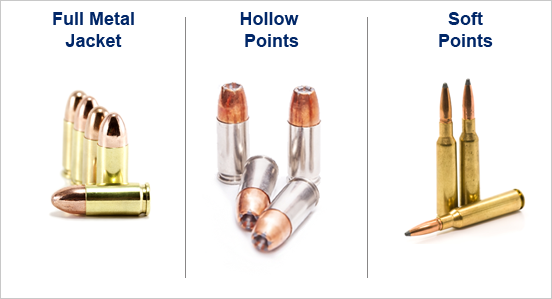
Boat Tail
Boat tail is a bullet feature rather than a bullet type. For instance, a full metal jacket bullet can be either traditional or boat tail.
Boat tail bullets have a tapered base that can be seen when the bullet is viewed from the side. Traditional bullets have a flat base.
The physics principle behind the design of boat tail ammunition is the same that is applied to a boat - the shape which is tapered at the "tail" or base helps reduce drag. This, in turn, provides more stability in flight and increases accuracy.
